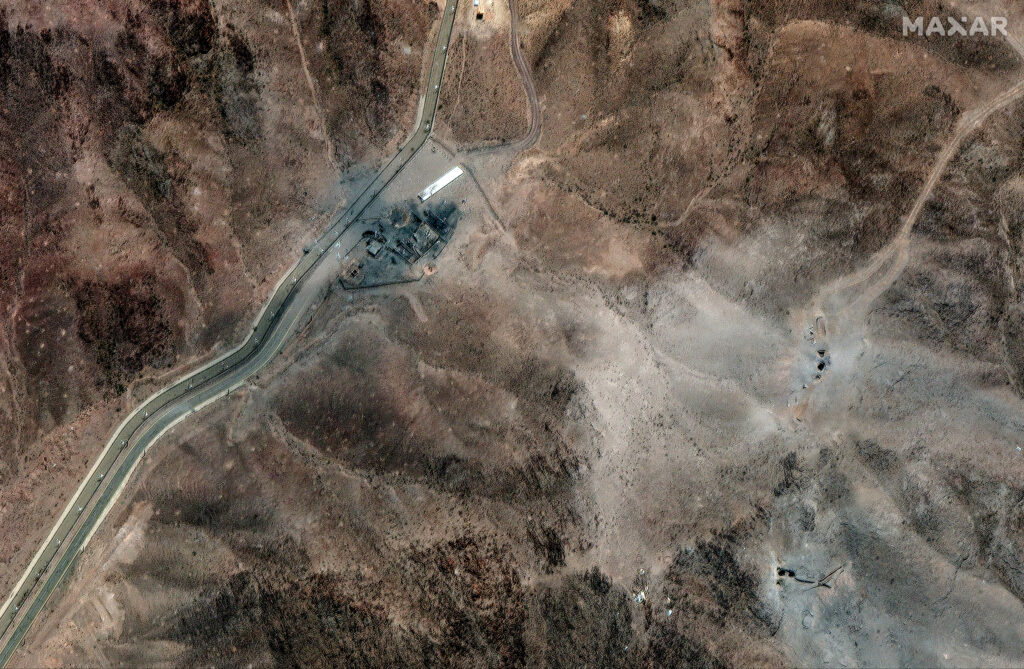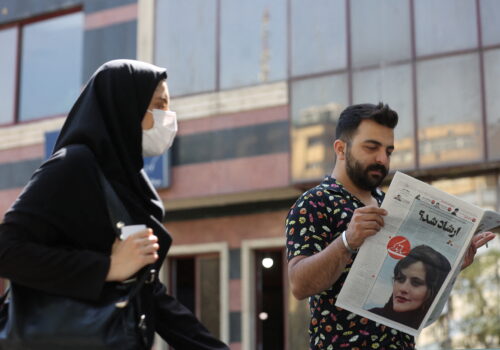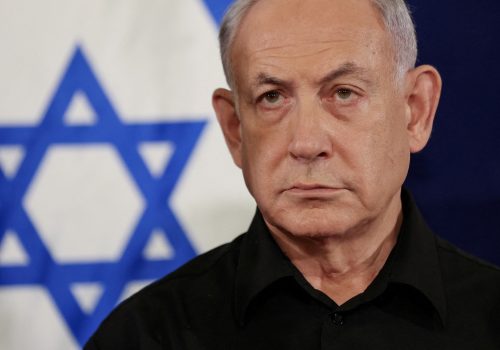To preserve ‘Rising Lion’s’ achievements, Israel must support an Iran nuclear deal
With the end of June’s Twelve-Day War between Iran, Israel, and the United States, the Israeli leadership began to celebrate the achievements of the war, and the “victory” it claimed over Tehran. Senior Israeli security officials claimed that Iran was no longer a nuclear threshold state, that it could not produce nuclear weapons, and that any attempt to rebuild its nuclear program would end in another Israeli attack. As a result of this assumption, the Israeli leadership adopted a policy according to which it opposed any future diplomatic agreement with Tehran.
In light of this policy, Israel exerted significant pressure on the “E3” grouping of Britan, France, and Germany to activate the snapback mechanism, pressure US President Donald Trump’s administration to refuse any diplomatic initiative with Iran, and, most importantly, continued to threaten that in the next war, it would not hesitate to harm Iran’s Supreme Leader Ayatollah Ali Khamenei, if it sought to resume developing its nuclear program. In other words, the same policy that Israel pursued before the war is also relevant after it, as Israel seeks to maintain maximum pressure on Iran.
The Israeli position is contrary to the position of the US administration and also of the E3 countries, which seek to renew diplomatic negotiations but impose conditions that the Iranian leadership cannot accept at this time, such as waiving Iran’s right to enrich on its soil or limiting the range of its missiles.
Therefore, without a nuclear agreement, there is a risk of a renewal of the war, which could even deteriorate into a war of attrition that will deepen the economic burden on the Israeli economy and risk any potential improvement in Israel’s strategic position. Moreover, the current situation increases the chance that Iran will ultimately choose to move towards nuclear weapons—there are more and more voices within the regime claiming that it has no other option—to secure its future.
SIGN UP FOR THIS WEEK IN THE MIDEAST NEWSLETTER
Threats to solidifying the Twelve-Day War’s achievements
First and foremost, because according to senior International Atomic Energy Agency (IAEA) officials, Iran still had a substantial amount of 60 percent enriched material (408 kg) after the war, as well as enrichment capacity based on centrifuges that were not installed at the enrichment sites in Iran. To this day, the extent of the damage caused to them is unclear. Therefore, theoretically, Iran can still enrich to 90 percent enrichment even without reactivating the sites at Natanz and Fordow, based on the enriched material currently present in Iran.

The only way to ensure that Iran does not use the same enriched material is to restore meaningful supervision of the nuclear sites through IAEA inspectors who left Iran at the beginning of the war with Israel, leaving those sites unsupervised. Without an agreement and the inspectors’ presence on the ground, Israel and the rest of the world rely only on intelligence information gathered from Iran that will describe what Iran is doing at those sites. Still, it is unclear whether such intelligence will exist; even if it does arrive, it may be subject to different interpretations. Hence, the presence of inspectors on the ground allows for a better understanding of what is happening in Iran’s nuclear program. The problem is that without a nuclear agreement, which is currently nowhere in sight, Iran will not agree to the return of those inspectors, and reliance on intelligence material will be exclusive, with all the complexities that come with relying solely on it.
But the enriched material in Iran is not the only issue that threatens Israel’s achievements in the war. Iran recently began an extensive reconstruction of its surface-to-surface missile capabilities, including a series of tests that are apparently aimed at improving Iranian launch capabilities in the face of the possibility of renewed war with Israel. At the same time, Tehran is working vigorously to restore its air defense system, which was severely damaged in the war, out of concern that the war between Israel and Iran will resume soon.
These moves are eroding Israeli achievements, and, above all, they indicate the inability to prevent Iran from rebuilding its conventional capabilities.
Above all, current Israeli policy misses the opportunity to exploit the internal struggle within Iran between the more conservative and moderate members of the Iranian leadership. In this context, it is essential to note that with the end of the war, domestic struggles inside Iran intensified over what policy the regime should adopt in its dialogue with the West. Although the Iranian leadership is united in its demand to continue enrichment on Iranian soil and still refuses to limit its missile program, the more moderate elements in the regime, such as President Masoud Pazeshkhian, seem to understand that after the war, the only way to restore Iran’s economy is through the lifting of sanctions through an agreement.
Therefore, it is possible that after the war, the conditions were created that led to an agreement that would allow Israel and the international community to impose conditions that would prevent Iran from building a nuclear bomb in the future and ensure that Iran will not be able to construct industrialized enrichment capacity in the future. As mentioned, Iran is still willing, in principle, to significantly limit its enrichment capacity on its soil.
Israel, of course, opposes any agreement that would allow the lifting of sanctions. Still, we must remember that without an agreement and against the backdrop of Israel’s threats on the one hand to renew the war and the deep fear in Iran that Israel intends to attack them again, the chances of escalation are incredibly high, whether in an Iranian “preemptive strike” as a result of a miscalculation or an Israeli attack initiated if Iran seeks to restore its nuclear program.
Ostensibly, Israel, riding the waves of success from the previous campaign, would not hesitate to renew the war, which would supposedly allow it to “complete the job” against Iran. But a renewal of the war also poses significant dangers for Israel. First, we need to remember that despite senior Israeli officials’ claims, Israel did not win the battle with Iran. It did achieve substantial achievements, but as mentioned, not only did Iran retain nuclear capability, but during the war, Iran also managed to hit many areas in Israel and caused significant damage, even though Israel’s starting point in the war was optimal.
The shortcomings of assumptions about a renewed war
Moreover, if the campaign against Iran is renewed, it seems that its opening conditions will be less suitable for Israel. Even if Israel initiates a campaign, it is clear that Iran’s preparedness for such a campaign will be better in light of the lessons Iran learned from the last war and its attempts (certainly with its missile system) to learn from these lessons in a way that will improve its ability to deal with the Israeli threat to this system.
Furthermore, it is uncertain whether Israel can also expect the same level of assistance it received from the US administration in the previous campaign, with an emphasis on the generous assistance provided by the United States to Israel in the field of missile defense. In US domestic politics, the enormous expenditure of some $800 million in THAAD missile support to Israel during the conflict generated significant criticism.
Additionally, in light of the multiple challenges facing the US administration at home and abroad, it is possible that the Iranian issue may not be at the top of Trump’s priority list. Moreover, in light of Israel’s difficult situation in the international arena, as the campaign in Gaza continues, it is not at all clear that Israel will receive any international support. That includes the Gulf states, which see Israel, certainly after the attack on Hamas headquarters in Qatar, as a more significant threat to their security than Iran. Therefore, further Israeli attacks on Iran are unlikely to help either Israel’s international standing or its relations with the moderate Arab states, including the Gulf states. But it is certainly possible that Israeli Prime Minister Benjamin Netanyahu assumes that if an agreement is reached with Hamas, he will receive the government’s support for another attack on Iran.
But above all, it seems that the Israeli leadership has an assumption that it can overthrow the regime in Iran with the renewal of the war, completely ignoring that, despite Tehran’s serious internal problems, the regime took advantage of the Israeli attack to strengthen its position within Iran and to strengthen the sense of Iranian nationalism. It is likely that future attacks will only reinforce this trend.
In light of all this, Israel must support a nuclear agreement—one that ensures that Iran’s every path to a bomb is blocked, and prevents Iran from reestablishing a large-scale enrichment capability, capitalizing on Israeli achievements in the war, even at the cost of symbolic enrichment in Iran. The lifting of sanctions may strengthen the regime. But it is still essential to remember that continuing them does not guarantee the overthrow of the regime, and mainly weakens those in Iranian leadership who are interested in strengthening ties with the West. The regime in Tehran has proven in the past that it can, in coordination with countries like China, continue to survive despite these sanctions. Therefore, despite the Israeli desire to solve Israel’s problems “by force of the sword,” an agreement, not a renewed war, serves Israel’s interests better. A future war, in light of the preparations being made in Iran for it, could be more difficult than the previous one and entangle Israel in a war of attrition with no end in sight. If Israel’s goal is to ensure that Iran cannot develop a bomb, an agreement is probably the only way to ensure this, even at the cost of strengthening the regime.
Danny Citrinowicz is a nonresident fellow with the Atlantic Council’s Middle East Programs. He is also a fellow at the Institute for National Security Studies.
Further reading
Tue, Sep 23, 2025
A geography of protest: Inside the rise of Iran’s minority factor
MENASource By
From the death of Mahsa Jina Amini to the Twelve Day War, the ethnic question has emerged as a significant dimension of Iran’s politics.
Mon, Apr 28, 2025
Why Israel will resist any US-Iran nuclear deal
MENASource By Danny Citrinowicz
Negotiations between the United States and Iran have displayed a significant divide between Washington and it’s ally Israel.
Thu, Oct 2, 2025
Why Israel’s push for West Bank annexation is going mainstream—and what it means for the Abraham Accords
MENASource By Itai Melchior
In the past, West Bank annexation was only endorsed by smaller right-wing parties. But today—the demands are far more mainstream in Israel.
Image: FILE PHOTO: U.S. President Donald Trump gives a thumbs up as he welcomes Israeli Prime Minister Benjamin Netanyahu at the White House in Washington, D.C., U.S., September 29, 2025. REUTERS/Kevin Lamarque/File Photo


